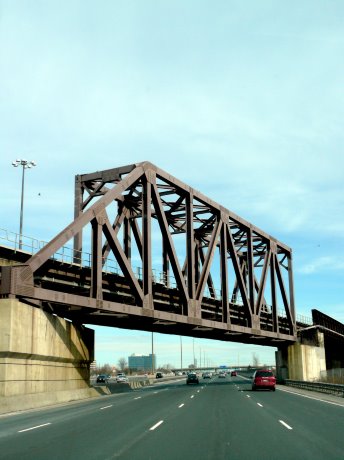TORONTO—Shoddy roadwork and flawed oversight at Ontario’s public transit agency Metrolinx were key issues brought to the forefront today as Auditor General Bonnie Lysyk tabled the 2016 Annual Report in the Ontario Legislature.
The report, presented for the first time in two volumes, contains results of value-for-money audits of provincial spending in health care, mental-health care, the environment, roads and transit construction, government procurement and employment programs.
Among 13 audits in volume 1, Lysyk reported a lack of appropriate oversight of designers and contractors by Metrolinx, and said the late delivery of their projects has resulted in additional costs. For contracts with CN and CP, Metrolinx does not know that it is getting what it pays for, as it does not verify charged costs nor ensure that they are reasonable, said the auditor general’s statement.
Lysyk also said the Ministry of Transportation has not fully implemented tests to identify asphalt that will crack before it is laid, and as a result, the pavement on some major Ontario highways has cracked prematurely, with the province paying millions to fix it.
"What stood out the most this year is the significant influence of non-government service providers on public-sector and broader-public-sector oversight and, in certain cases, decision-making," Lysyk said after the report was tabled. "It is important for everyone doing business with the government to keep in mind the concept of shared responsibility for the use of taxpayer money to deliver services, protect the environment or design and build infrastructure."
Lysyk also reviewed the province’s cap-and-trade program. Only 20 per cent of the total amount of the 2020 targeted emissions reductions for Ontario of 18.7 megatonnes will likely be achieved under the cap-and-trade system, set to be implemented in January. The remaining 80 per cent, or 14.9 megatonnes, is forecast to occur in Quebec and/or California.
There are potentially thousands of polluters operating without government approval, the report indicated, and about 80 per cent of the 32,500 emitters that received approvals in the last 15 years have never been inspected by the Ministry of the Environment and Climate Change.
The auditor general also found weaknesses in Ontario’s environmental assessment practices. Ontario generally requires no environmental assessments in advance of private-sector projects in such sectors as mining and chemical manufacturing, which can have extensive long-term environmental and health impacts, said the report. No environmental assessments have been conducted on the government’s plans other than forest-management plans in the past two decades.
Other targets in the report included Ontario’s Electronic Health Record initiative and the province’s lack of province-wide standards for treatment of mental health problems.
The Office of the Auditor General is an independent office of the Legislative Assembly that conducts value-for-money and financial audits of the provincial government, its ministries and agencies.
Follow @DCN_Canada and visit dcnonl.com for more updates on this developing story.











Recent Comments
comments for this post are closed